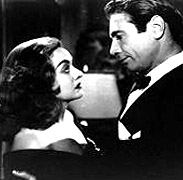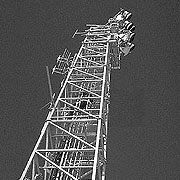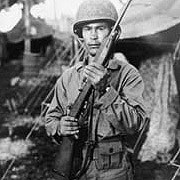Project Home
2000-2001
1999-2000
Spring 1999
Fall 1998
1997-1998
ISIS Publications
Links
Contact us
Search
Projects Overview
MilWaste Program
Amazon Project
Quantum Physics
Seminars
Science Dialogue
Recoding Life
ISIS Fellows
|
This fall, the ISIS seminar series focuses on the sciences, technologies, and cultures of cryptography - the coding and decoding of all kinds of information. From matters of national security, military operations, and international affairs, to buying books over the internet and making sure you have "Pretty Good Privacy," developments in cryptography can have profound implications for life in societies that aim to be democratic. The scientific and social issues coded within cryptography are fascinating, complex, and sometimes frightening. That's why we'll be taking our time, and looking at cryptography through multiple lenses: scientific, historical, political, and cultural. Whether you attend a few or many, we hope that the Thursday night series will provide a sustained forum for open, lively discussion and questioning among a range of steady participants.
The seminar series will include documentary and popular films, and talks by a diverse group of experts on a range of questions: What are the most recent political and legal developments concerning privacy and security on the Internet? How do cultures of trust and secrecy among practicing cryptologists affect the outcomes of science and technology? What kind of code is the "genetic code," and does it really contain the "secret" of life? Will advances in quantum cryptography and quantum computing create the perfectly secure code, or the perfect codebreaking device, or both? And what should scientists and citizens question, think, and do to pursue a cryptography that guarantees not only secrecy, but principles of justice?
Dr. Mary James
November 19
 |
|
Decoding the Scientific History of the Rainbow
The rainbow has been imbued with meaning by many cultures throughout the ages. The evolution of our own understanding of the rainbow reflects the evolution of our western scientific world view. In this talk Dr. James discusses the evolution of ideas in optics from ancient Greece through Newton that bear on the scientific description of the rainbow.
Mary James, an alumna of Hampshire College, was recently voted the Best Physics Teacher in America by Rolling Stone magazine. She was also the first African-American woman to present a talk on accelerator physics to the American Physical Society. Dr. James is now with the Physics Department at Reed College; her research is in accelerator physics and electricity and magnetism. |
| |
Jean-Francois Blanchette (RPI)
November 5
 |
|
All About Alice (and Bob, Eve, & Oscar, too): The Research Culture of Cryptography
Modern cryptology researchers have been enthusiastically portrayed in the media as cyberspace's Freedom Fighters, and the fruit of their work as tangible evidence that computers not only control, but can also liberate. In this seminar, we'll see how this simplistic picture of cryptological research shapes both the public perceptions of cryptology, and cryptologist's perceptions of themselves and their work.
Jean-Francois Blanchette will discuss how the culture of secrecy and military intelligence has deeply informed the models cryptologists use to analyze and design security artifacts. He will also discuss how, from an initial concern with communication secrecy, cryptological research has dramatically expanded its scope to encompass digital signatures and certificates, watermarking, e-cash, copy-protection, and other domains. These are all artifacts of much broader cultural and societal import that can be fit under the analytical category of "privacy." Cryptologists, as well as the rest of us, have to imagine and invent richer and more complex representations of what cryptological research is about and what its object is, and to explore other social and ethical paradigms than those offered by privacy and confidentiality.
Jean-Francois Blanchette is a graduate student in the Department of Science, Technology and Society at Rensselaer Polytechnic Institute. Trained as a cryptologist, he is now researching and writing about the practices, cultures, and ethics of cryptology. |
| |
Dr. Susan Landau
October 29
 |
|
Privacy on the Line: the Politics of Wiretapping & Encryption
Telecommunication has never been perfectly secure, as the Cold War culture of wiretaps and international spying taught us. Yet many of us still take our privacy for granted, even as we betcome ever more reliant on telephones and computer networks. The security of these transactions has become a source of wide public concern and debate, and the US government has proposed various schemes to prevent the proliferaion of unbreakable cryptography (and thus perfectly concealable communications).
What would be the cost to society if criminals concealed their communications using codes the government cannot decipher? How will US economic competitiveness be affected by export controls on cryptographic systems? How important is protecting society from abuses by criminals and terrorists versus protecting personal privacy from threats-including potential eavesdropping by the government?
In this seminar Dr. Susan Landau, co-author with Whitfield Diffie of the recent book Privacy on the Line (MIT Press, 1998) and an associate professor of computer science at the University of Massachusetts, will discuss the dual-edged sword cryptography presents to both law enforcement and national security. Dr. Landau will present a brief history of wiretap law in the United States and place the current policy on cryptography in the context of decisions over the last twenty years. |
| |
Films:
September 24
 |
|
Tales from Cryptography -- "Navajo Code Talkers" and "Codebreakers"
Two documentary videos focusing on cryptography during World War II:
"Navajo Code Talkers" narrates how, when Japan was routinely intercepting and decoding U.S. diplomatic and military cables, the Army recruited, deployed, and turned the Navajo into a kind of living cryptographic device. "Codebreakers" is broader in scope, covering the importance of cryptography to the entire Allied war effort, focusing on such famous men and machines as mathematician Alan Turing and the German Enigma devices.
Seminar materials include the two films and may be available through your local library or video store. |
|




